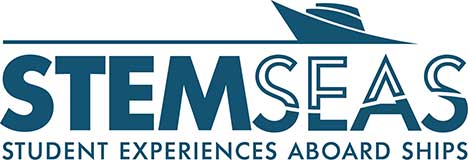Me: Would you please state your name.
Mark Lando
Me: How long have you been sailing?
Mark: 32 years. Columbia was the first shipping job I had in 1989. I began as an officer.
I have been captaining for 22 years.
Me: Is there any schooling required to be a captain? Or does experience matter more?
Mark: There are gradual levels as you become a captain. As you climb the ranks, specific tests and licenses are required from a 3rd mate’s license. Sail for a year to become a 2nd mate, follow the same pattern to the chief mate, then finally a captain. When I first began, the experience you gained working out at sea propelled an individual to higher career levels. Nowadays, school is required to move up in career levels. Both expertise and school are necessary to do well in this field and lifestyle.
Me: Have things changed for the better or worse since you began your career out at sea?
Mark: Additional training has been added on overtime. Expensive but beneficial to the individual who has no experience at sea. Over the years internationalization of standards has benefited the industry. The Coast guard is working to comply with these standards. There have always been international rules like having life jackets and safety equipment. They have grown over time through gradual improvement. However, imposed safety standards are often difficult to maintain if there is no extra income to purchase the safety supplies to stay in compliance.
Me: What type of individual is best suited for this lifestyle?
Mark: In general, there are challenges to any job, especially a career that involves long months out at sea. There is the separation of family and friends. Messaging has improved over time, but individuals still have to be separated over long periods with poor communication to keep up with those bonds. It takes a particular type of person to have the ability to disconnect and reconnect with loved ones when appropriate. Vessel motion, and tight housing, are certain things you have to get used to. Long workweeks consist of averaging 7-day work weeks with little if any breaks. Someone dissatisfied can’t just quit due to being so far off from any shore. Discipline is key that drives many people to stay in this field, and without this crucial attribute, an individual does not make it very long.
Me: Does this industry have gender inclusion? I ask because I noticed your third mate is a female.
Mark: When I first started, there was a small percentage of women. There are many opportunities for gender inclusivity, and more women are interested in living out at sea. Pay may not be a significant boon on this ship, so it depends on the lifestyle choice. Overall, the industry has grown to be more inclusive.
Me: Does the work that this vessel is doing matter?
Mark: Yes, I believe we are adding to scientific knowledge. We are not looking for oil or gas. While our data may not be an immediate benefit, there is an overall gradual growth in the beneficial ecosystem and economic merit.
Me: What is your favorite aspect of life at sea?
Mark: Fewer distractions at sea. There is no Netflix. Easier to pick up a book. Life in general. Balanced for self-improvement. Although this lifestyle has negative features, specific benefits have an overarching effect on growth. Being away from technology allows a person to take a break from society and the issues that may bind a person. I can read books, reflect on decisions, or just learn to be at peace with myself. The ocean is beautiful, and the adventures that await a person out at sea are constantly changing. It’s refreshing to have the ability to live in two different environments.
Me: Have you been through severe storms that may have made you question your decisions or acquire regrets?
Mark: I have been caught in storms, but I would not say I have regrets, more just decisions that I wished I had made differently. The crew must stay focused in those situations, and the captain must remain levelheaded when passing a storm. 12 or 13 years ago, there was a death on the ship. The crew did a good job responding to the medical emergency. He was a protected species observer and had a heart attack on the mess deck. We were 8 days out of Honolulu, so we had to convert the refrigeration unit to keep his body from decaying to preserve the body. Because we were so far out at sea, we decided it was best to head to the closest land, which was 4 days to Yokohama, Japan.
Me: Thank you so much for this interview and having us on your ship.
Mark: This was my first experience with having students on board, so I feel like me and the crew benefited. Thank you all for participating in this program.
-Ignacio Rueda

